
| IIE Home | Membership | Publications | Open Doors | Contact Us |
|
||
|
||
|
The Institute of International Education (IIE) is pleased to announce the winners of the annual IIE Andrew Heiskell Awards for Innovation in International Education. Since 2001 the awards honor the most outstanding initiatives in international higher education among the member campuses of the IIENetwork, IIE’s membership association of more than 1,400 higher education institutions. IIE will present the awards at a ceremony in New York City on March 20, 2015 as part of its annual Best Practices in Internationalization Conference for campus professionals. Over 150 campus leaders and international education professionals in the United States and around the world attend the conference each year.
IIE's Heiskell Awards showcase the most innovative and successful models for internationalizing the campus, study abroad, and international partnership programs in practice today, with a particular emphasis on initiatives that remove institutional barriers and broaden the base of participation in study abroad and international teaching and learning on campus. This year’s awards will recognize ten initiatives that are being conducted by thirteen campuses.
The IIE Andrew Heiskell Awards were named for Andrew Heiskell, a former chairman of Time Inc. and a long-time member of the Executive Committee of IIE's Board of Trustees. Mr. Heiskell was a renowned international and cultural philanthropist and a dedicated supporter of international learning.
The 2015 Heiskell Award Winners
See profiles of this year’s winners, along with 14 years of winning programs on IIE’s Best Practices Resource. Read the full press release about the 2015 Heiskell Award winners.
STUDY ABROAD
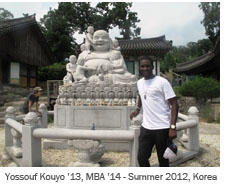 Too many underrepresented students enter college without the expectation of studying abroad. The State University of New York at New Paltz is shifting the paradigm by connecting these students with the resources needed to ensure that all students have access to study abroad opportunities. The Center for International Programs (CIP) has teamed up with the Educational Opportunity Program (EOP), a SUNY wide program that serves academically and economically disadvantaged students, to reach out to students who may not have previously thought about studying abroad. The campus professionals who run these programs introduce students to international opportunities early on, and provide the customized services they need to take advantage of them. Staff members work closely together to advise students on financial matters, expectations, cross-cultural adjustment, and scholarship opportunities for study abroad by providing tutoring and financial resources. Too many underrepresented students enter college without the expectation of studying abroad. The State University of New York at New Paltz is shifting the paradigm by connecting these students with the resources needed to ensure that all students have access to study abroad opportunities. The Center for International Programs (CIP) has teamed up with the Educational Opportunity Program (EOP), a SUNY wide program that serves academically and economically disadvantaged students, to reach out to students who may not have previously thought about studying abroad. The campus professionals who run these programs introduce students to international opportunities early on, and provide the customized services they need to take advantage of them. Staff members work closely together to advise students on financial matters, expectations, cross-cultural adjustment, and scholarship opportunities for study abroad by providing tutoring and financial resources.First-Year EOP student seminars devote class time to international education opportunities, with assignments such as developing a four-year academic plan to include a study abroad experience. First-year students attend special workshops during which returned EOP study abroad students speak to students about their experiences. The EOP study abroad liaison surveys students to gather data related to students’ needs, and the international center provides a writing tutor for students who need assistance with their scholarship essays for study abroad.
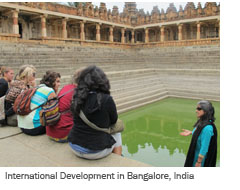 Cost has been identified as one of the biggest barriers keeping college students from pursuing experiences overseas. As students struggle with tuition fees and loans, the price tag for study abroad can seem overwhelming. However, the University of Minnesota has identified innovative and effective ways to assist students with pre-departure costs associated with study abroad. Cost has been identified as one of the biggest barriers keeping college students from pursuing experiences overseas. As students struggle with tuition fees and loans, the price tag for study abroad can seem overwhelming. However, the University of Minnesota has identified innovative and effective ways to assist students with pre-departure costs associated with study abroad.The Bridging Loan Program created by University of Minnesota assists students who do not have the funds available upfront to cover program deposits and flight booking costs. This enables students to pay for these pre-departure costs later with their financial aid package without added interest or fees. The education abroad office holds billing and covers flight costs through a partner travel agency until the students’ financial aid is disbursed.
To date, the Learning Abroad Center has "loaned" thousands of dollars to more than 100 students to cover upfront costs. UMN offers financial advising throughout the study abroad process, resulting in decreased defaults and increased financial literacy for students who go abroad.
INTERNATIONALIZING THE CAMPUS
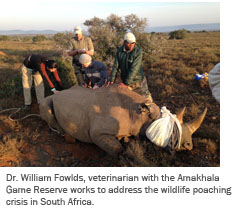 TCU developed a campus-wide program of resources and events called Discovering Global Citizenship to engage TCU with the world by providing international and comparative experiences for students. With 30 percent of students and faculty already engaged in global pursuits, the goal in launching the program was to build a grassroots network of learning to impact all levels of the university and build global awareness among the other 70 percent of the community. TCU developed a campus-wide program of resources and events called Discovering Global Citizenship to engage TCU with the world by providing international and comparative experiences for students. With 30 percent of students and faculty already engaged in global pursuits, the goal in launching the program was to build a grassroots network of learning to impact all levels of the university and build global awareness among the other 70 percent of the community. Discovering Global Citizenship has created six different initiatives to date, incorporating technology for overseas communication with foreign students, developing international projects and partnerships, bringing in guest speakers, and fostering research collaboration with visiting scholars. The purpose of this international programming on campus is to bring global opportunities to the TCU campus so that students and faculty can engage in sustained international experiences in their own university community.
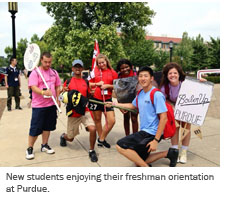 The P3i Program at Purdue University integrates international students into all aspects of campus life and prepares them to engage in meaningful ways with their American classmates, faculty and community. With pre-arrival, arrival, and post-arrival programs to connect international students with Americans and integrate them into the campus community, these students have the opportunity to participate in American culture and adapt successfully to the university environment. The P3i Program at Purdue University integrates international students into all aspects of campus life and prepares them to engage in meaningful ways with their American classmates, faculty and community. With pre-arrival, arrival, and post-arrival programs to connect international students with Americans and integrate them into the campus community, these students have the opportunity to participate in American culture and adapt successfully to the university environment. Before arriving, students receive extensive campus and cultural information both in person and online, communicate in person with staff and academic advisors, and connect with domestic student mentors by email. During orientation, students join trained domestic student orientation leaders for integrative programming. Orientation leaders and mentors stay in touch after classes begin, and international students are regularly encouraged to participate in extracurricular activities and social events that bring together international students and their American student counterparts during their time at Purdue.
 Russia’s Higher School of Economics (HSE) leads a multi-faceted Internationalization Program that brings international students and faculty to campus, provides comprehensive international service centers, and supports international research laboratories and partnerships, dual-degree programs, and international research collaboration. Russia’s Higher School of Economics (HSE) leads a multi-faceted Internationalization Program that brings international students and faculty to campus, provides comprehensive international service centers, and supports international research laboratories and partnerships, dual-degree programs, and international research collaboration.HSE’s Center for Academic Integration has an Academic Unit to help international students with course selection, internship opportunities, and other academic-related questions. There is also an International Student Support Unit to help with visas, accommodation, and health insurance, and provide cultural and social activities. The university offers English-language programs at different levels (Master’s, Bachelor’s, and non-degree) and Russian-language training programs where students can strengthen their language skills before studying in Russian. HSE has increased its English full-degree offerings from 2 to 13 in recent years to attract students from all backgrounds.
In 2014, HSE founded an International Student Recruitment Center to increase the number of international students from diverse geographic regions. As a commitment partner of IIE’s Generation Study Abroad Initiative, HSE has pledged to quadruple the number of visiting students from the U.S. to reach 100 by 2018.
INTERNATIONAL PARTNERSHIPS
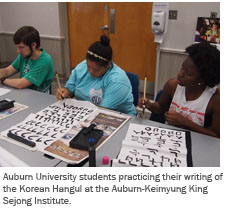 Auburn University’s relationship with Keimyung University in South Korea stems from a local connection with Korean automobile manufacturers in Alabama. Auburn University is located directly between two South Korean automobile corporations and their supply chain companies, which bring a strong Korean influence to the surrounding community. Leveraging this industrial context, Auburn University has created a comprehensive, strategic partnership with Keimyung University to provide Korean language and cultural programming for students. Auburn University’s relationship with Keimyung University in South Korea stems from a local connection with Korean automobile manufacturers in Alabama. Auburn University is located directly between two South Korean automobile corporations and their supply chain companies, which bring a strong Korean influence to the surrounding community. Leveraging this industrial context, Auburn University has created a comprehensive, strategic partnership with Keimyung University to provide Korean language and cultural programming for students.This partnership created the Auburn-Keimyung Korea Center and subsequently led to a Korean government-sponsored Institute on campus, offering language instruction on campus as well as numerous academic and cultural events that expose the faculty and student body to customs, language, food, music, martial arts, film, and traditional performances from Korea.
The King Sejong Institute creates social and academic interactions among the university, corporate, and local communities. Visiting scholars are invited by the Institute, and many spouses of Korean executives work in academic departments on campus. The relationship has resulted in additional funding for campus research and academic programs from corporate sources, and has led to internship possibilities for both American and Korean students.
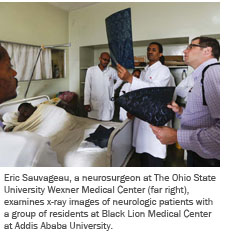 The Ohio State Ethiopia One Health Partnership connects Ohio State’s expertise in health sciences to sub-Saharan Africa. Partnering with Addis Ababa University and the University of Gondar, Ohio State works with 19 Ethiopian and U.S. institutes to improve health, build capacity and provide mutually beneficial learning opportunities for students in Ethiopia and Ohio. The Ohio State Ethiopia One Health Partnership connects Ohio State’s expertise in health sciences to sub-Saharan Africa. Partnering with Addis Ababa University and the University of Gondar, Ohio State works with 19 Ethiopian and U.S. institutes to improve health, build capacity and provide mutually beneficial learning opportunities for students in Ethiopia and Ohio.Initiated in 2009 with just two Ohio State faculty, it expanded in 2012 to include all of Ohio State’s health sciences colleges including, agriculture, social work, and business. More than 50 Ohio State students and 45 faculty members are involved in global health projects in Ethiopia such as advancing neonatology and food safety, screening and treating cervical cancer, and eliminating rabies.
The Ethiopia One Health Partnership is innovative because it solves major societal issues while training students overseas to address some of the world’s most neglected and dangerous diseases, such as rabies. With seven health science colleges on one campus, Ohio State offers its Ethiopian partners unprecedented interdisciplinary collaboration that results in healthier and more productive lives for Ethiopia’s citizens.
INTERNATIONALIZING THE COMMUNITY COLLEGE
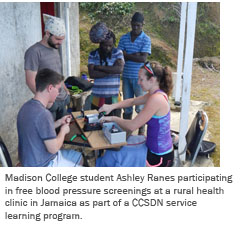 Madison Area Technical College’s Community College Sustainable Development Network (CCSDN) brings together faculty and programming from 24 U.S. community colleges, building a network of study abroad programs in the STEM disciplines. The Network is specifically aimed at internationalizing STEM education and expanding community college participation in study abroad through faculty-led programs that connect applied sciences with sustainable development needs in Central America and beyond. Madison Area Technical College’s Community College Sustainable Development Network (CCSDN) brings together faculty and programming from 24 U.S. community colleges, building a network of study abroad programs in the STEM disciplines. The Network is specifically aimed at internationalizing STEM education and expanding community college participation in study abroad through faculty-led programs that connect applied sciences with sustainable development needs in Central America and beyond. Many community colleges lack the staff, knowledge base, and student population size to sustain study abroad programs. Through the CCSDN program, Madison Area Technical College (Madison College) addresses these challenges by providing training and support to enable faculty, especially in STEM fields, to develop new study abroad opportunities for students. This provides community college leaders with tools to support new faculty led-programs and foster collaborative programs that can be sustained by enrollments from multiple institutions in the network.
The CCSDN provides opportunities for community college faculty to shadow program leads on existing programs, offers training in best practices in study abroad, provides a framework for shared program development, and coordinates jointly run programs abroad. To date, network members have developed nineteen new study abroad opportunities in areas such as engineering, renewable energy, sustainable architecture, sustainable construction, sustainable agriculture, tropical ecology, statistics, education, nursing, and dental service.
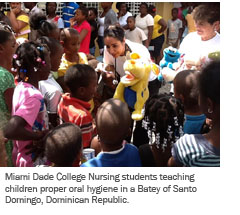 Miami Dade College graduates more Hispanic and African American students than any other institution in the country, creating a unique platform for engaging students with their heritage countries and cultures in the Caribbean and Latin America. Miami Dade College graduates more Hispanic and African American students than any other institution in the country, creating a unique platform for engaging students with their heritage countries and cultures in the Caribbean and Latin America.The Diasporic Knowledge Remittance Study Abroad Program, created by Miami Dade College, allows non-traditional students to study abroad in the health sciences and reconnect with their countries of heritage in the Caribbean and Latin America while enhancing their global health competency. The study abroad programs in the health sciences include; physician assistant, nursing, dental hygiene, and vision care and are located in Haiti, Jamaica and the Dominican Republic.
These programs advance Miami Dade’s strategic goal of preparing students to be engaged global citizens by offering culturally inclusive pedagogy, internationalized curriculum, and foreign-based experiential learning. In addition to providing skills based opportunities for students, the program has created relationships and knowledge exchange between college faculty and medical and nursing colleges overseas.
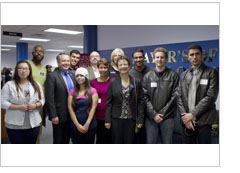 Spokane Falls Community College’s 2020 Global Vision Program provides opportunities for U.S. students and faculty to participate in study abroad and international service learning, with a program of international activities that furthers its mission to prepare students to live responsibly in an increasingly global civilization. The initiative integrates international instructional content into the curriculum, while bringing global activities to campus and increasing the number of community college students who study abroad. Spokane Falls Community College’s 2020 Global Vision Program provides opportunities for U.S. students and faculty to participate in study abroad and international service learning, with a program of international activities that furthers its mission to prepare students to live responsibly in an increasingly global civilization. The initiative integrates international instructional content into the curriculum, while bringing global activities to campus and increasing the number of community college students who study abroad. Last year, 235 students attended the International Guest Speaker Series, over 200 students and faculty participated in the Global Ambassadors program, and more than 500 attended Global Education-sponsored films. SFCC has also redesigned its International Peer Mentors Program to help with recruitment and retention of international and domestic students, and it now includes 100 student participants each quarter. In addition, international enrollment has increased by 14%, in part by expanding the use of social media for recruitment and retention.
SFCC has expanded its study abroad and service learning options, with a focus on including low-income and underrepresented community college students. In July 2014, the college launched a new program that brought a pilot group of five underrepresented students to Brazil for a four-week service learning experience. SFCC has also made a commitment to Generation Study Abroad to double study abroad participation and diversify the students and countries represented in study abroad programs.
The members of the Selection Panel for the 2015 IIE Heiskell Awards include international education leaders from a diverse range of organizations: Arlene Jackson, Director of International Education, American Association of State Colleges & Universities (AASCU); Daniel Obst, Deputy Vice President for International Partnerships, Institute of International Education (IIE); Janice Thomas, Director, International Education Center, Brookdale Community College; Anne Waters, Senior Associate Dean, School of International and Public Affairs at Columbia University; and Brian Whalen, President and CEO, The Forum on Education Abroad.
|
| www.iie.org/iienetwork • Member website of the Institute of International Education © 2025 Institute of International Education. All rights reserved. |


